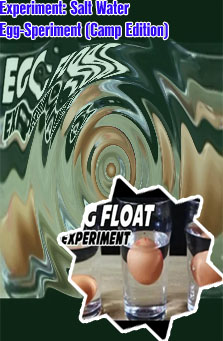Floating egg experiment
Get Our Science Experiments in Email – Signup Today
When enough salt is added to the water, the saltwater solution’s density is higher than the egg’s, and the egg will then float! The ability of something, like the egg, to float in water or some other liquid is known as buoyancy. But just how much salt is needed to make an egg float? In this science activity, you’ll figure that out by making salt solutions with varying concentrations of salt in them. Egg density experiment Exploring reconciliation between Aboriginal and Torres Strait Islander peoples and the broader Australian community is a key part of nurturing culturally competent children who feel connected with their community.
Egg in salt water experiment
We love to do simple science experiments! At home and in the classroom science experiments are a very meaningful way to get kids engaged and thinking about the world around them. This floating egg science experiment involves just a couple of everyday materials you probably already have on hand! Helpful Information What happens when you toss a coin in water? It sinks, doesn’t it? But why does an apple float in water without sinking to the bottom? Some things float while others sink when you put them in water, because of a concept called density. 
Login to your account
Our final step is to put each egg in a glass, but before we do that, make a hypothesis about which egg you think will float and which egg you think will sink! Add to collection When you fill up the glass halfway with the salt water, the egg floats. When fresh water is added on top, it is less dense than the salt water, so it floats on top, allowing the egg to still float in the middle.
Salt and egg experiment
Method and observations: This $600-Million Room Contains the World's Largest Collection of These Tiny Endangered Animals We know that some things float in the water and some others not. Do u know why the things sink in the water!? Let us learn something about floating science using eggs.
|

